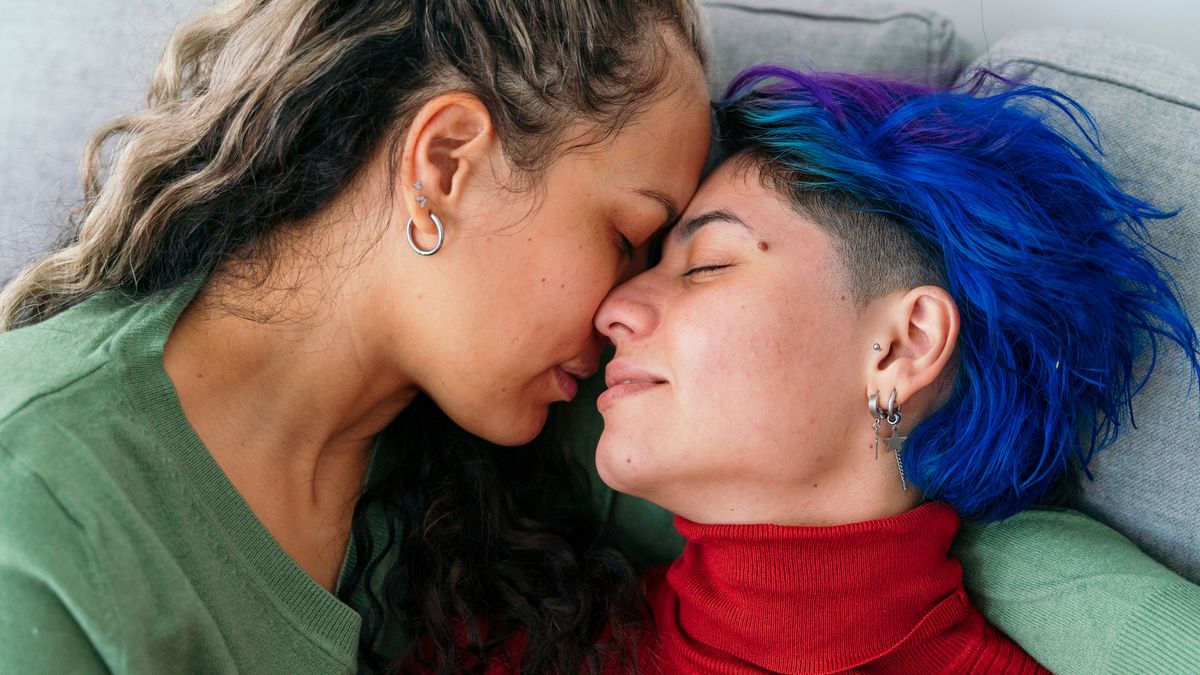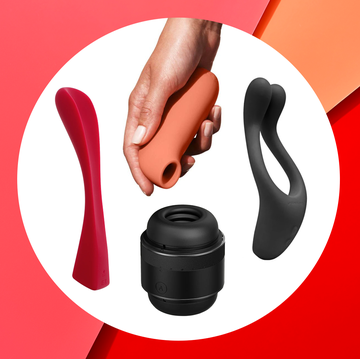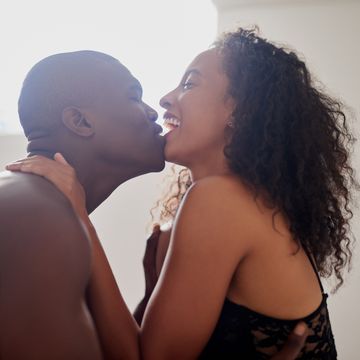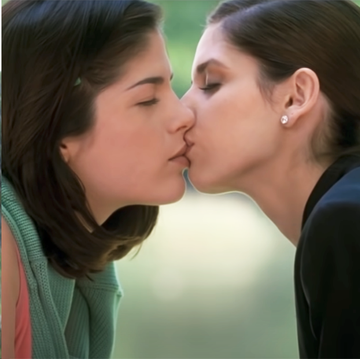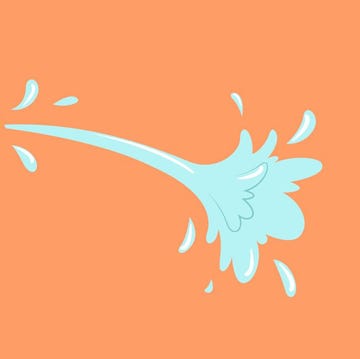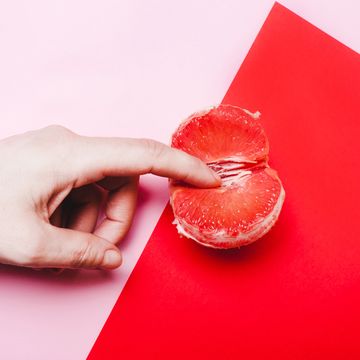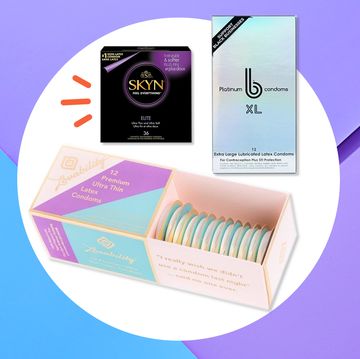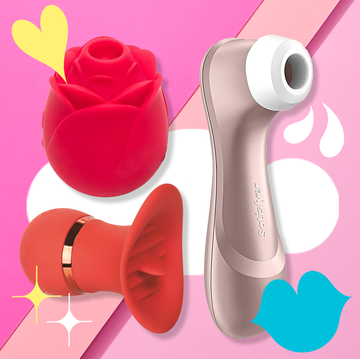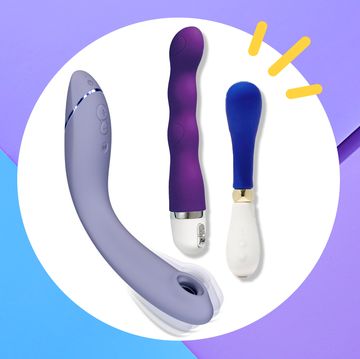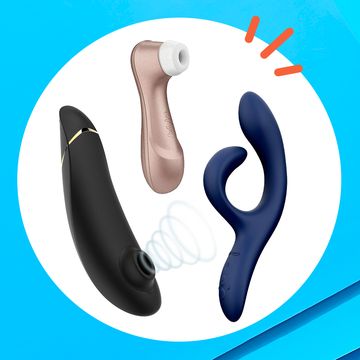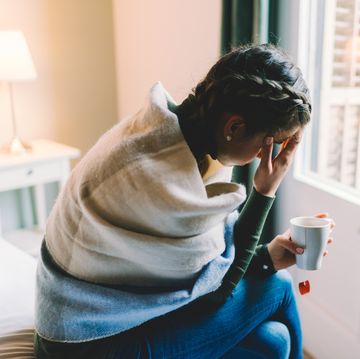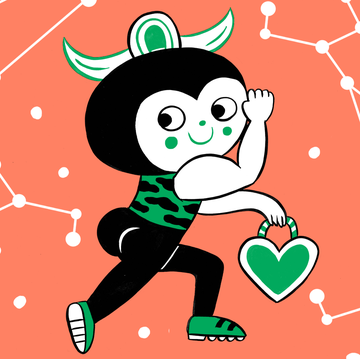You may be aware that the “Q” in the acronym LGBTQIA+ stands for “queer.” But what exactly does queer mean? Unlike the identity labels gay, lesbian, and bisexual, the term’s meaning and the community of people it represents is less clear.
“Queer is an umbrella term for people who are not cisgender, heterosexual, allosexual, and/or alloromantic,” says licensed psychologist and sex educator Liz Powell, PhD. “Since the dominant paradigm is cisnormative, heteronormative, and alloromantic/allosexual, in essence ‘queer’ is a way to unite the interrelated struggles of the groups who do not fit into that paradigm.”
As language has evolved, people have added more identity terms and labels to the lexicon to describe the gender, sexual, and romantic orientations that best describe them. And as members of the LGBTQIA+ community have increasingly recognized that their struggles, experiences, and expressions of love are blended, the community at large has gravitated towards more umbrella terms like “queer” to reflect this amalgamation and the power in community.
Although the term “queer” is not new, the meaning and connotations behind the word have evolved over time. Nowadays, many people, especially younger members of the LGBTQIA+ community, tend to view the word in an empowering light, but it wasn’t always like that. Ask someone who grew up in the sixties and seventies (heck, even the nineties and early 2000s), and they’ll tell you that the term was a lot more political and not as widely accepted as it is now.
Meet the Experts:
Liz Powell, PhD, is a licensed psychologist, sex educator, and relationship therapist specializing in kink, polyamory, and queer relationships.
Jen LaBarbera is the vice president of global outreach and partnership management at InterPride, an organization fighting for legal, social, and cultural equity for LGBTQIA+ communities.
Dulcinea Alex Pitagora, PhD, LCSW, CST, is a licensed psychotherapist, sex therapist, and sex educator specializing in kink and alternative lifestyles.
Martha Tara Lee, DHS, is a clinical sexologist, relationship counselor, and AASECT-certified sexuality educator.
Even today, some people are still not fans of the word even though, for the most part, the narrative has changed regarding its meaning and usage. With that said, Women’s Health spoke to queer psychologists and sex therapists to get the lowdown on what the word “queer” actually means, who the label applies to, who it doesn’t apply to, and why the term remains controversial.
What does 'queer' mean?
At its simplest, “queer” refers to anyone who isn’t straight. In other words, any gender or sexual orientation that falls under the LGBTQIA+ umbrella (i.e., lesbian, gay, bisexual, transgender, intersex, asexual, etc.) may be considered queer. Someone who is non-binary or gender non-conforming may also identify with the “queer” label. Additionally, the identity label is often also used as an umbrella term to describe the LGBTQIA+ community itself. For example, it’s not uncommon to hear someone say, “I’m queer” or “I’m a member of the queer community.”
And while queer is an umbrella term, it’s important to note that it means something a little different to everyone who uses it and identifies with it. According to Jen LaBarbera, vice president of global outreach and partnership management at InterPride, the definition of “queer” and what it means to be queer are two different conversations.
“‘Queer’ has as many meanings as there are people who claim it as an identity and/or label. If you ask 50 queer people what ‘queer’ means, you’ll receive 50 different answers,” LaBarbera says. “‘Queer’ is an identity label that someone might use, and it’s also more than just an individual identity; queer is a community, queer is liberation.”
So, who’s considered queer?
Perhaps unsurprisingly, there isn’t one cookie-cutter answer to this question.
Given that it’s up to the individual to self-define what “queer” means to them, many different sexual, gender, and romantic orientations may identify with the label, explains psychologist and sex therapist Dulcinea Alex Pitagora, PhD.
“Having said that, the most common conceptualization of the word ‘queer’ is to describe people who are in the non-straight spectrum (i.e., lesbian, gay, bisexual, pansexual, etc.). I would also broaden the definition to include those who identify outside of the cisgender binary,” Pitagora says. “However, not everyone who identifies as lesbian, gay, bisexual, pansexual, etc. will also identify as queer, and vice versa.”
What’s more: Some individuals who are in specific alternative relationship communities, such as those who are ethically non-monogamous or poly, and even LGBTQIA+ allies may self-identify as queer “as the term allows for fluidity and inclusivity in understanding diverse experiences related to gender and sexuality,” says clinical sexologist Martha Tara Lee, DHS.
Yet, it’s important to note that some members of the LGBTQIA+ community feel that it’s inappropriate for straight, non-monogamous folks to adopt the queer label for various reasons—more on that later.
Who isn’t considered queer?
There’s no one person who can say who is and isn’t queer. According to Lee, the boundaries of the queer community can be fluid and subjective, and different people may have varying opinions on who can and who should not use the identity label. As societal understandings of gender, sexuality, and relationships continue to evolve, so too may the definitions and identities within the LGBTQIA+ community.
In general, however, cisgender heterosexual individuals, people in monogamous relationships, and individuals who do not self-identify as queer are usually not considered part of the queer community, explains Lee.
And whether or not those in alternative relationship communities or alternative romantic relationships, such as polyamory, kink, or ethical non-monogamy, should be able to identify as queer, even if they solely enjoy heterosexual relationships, is controversial. While cisgender, heterosexual people who identify as poly and/or are in non-monogamous relationships may identify as queer, some members of the LGBTQIA+ community believe that by doing so they’re piggybacking off the community—and its many marginalized members—as well as years of activism.
“I think that if someone is genuinely not queer in any dimension other than non-monogamy, I would hesitate to say that they belong under the queer umbrella,” says Powell. However, it’s a complicated subject as in Powell’s experience “lots of folks begin exploring dimensions of their queerness by exploring non-monogamy first.” For this reason, it’s almost always right to simply accept how someone chooses to identify themselves even if it doesn’t make sense from one’s outsider perspective. After all, no one wants to feel alienated or excluded for exploring an unlocked part of their identity.
Why is the term 'queer' so controversial?
While the word “queer” is now more vastly accepted as a term of empowerment and community by the majority of the LGBTQIA+ community, this wasn’t always the case. In fact, the origins of the term are much more derogatory.
Starting as early as the 16th century, the word “queer” originally meant “strange” or “unusual,” according to Lee. But, during this time, it was not associated with sexuality or gender identity. In fact, it wasn’t until the late 19th century to early 20th century that the term began to be used as a slur towards gay men, implying that men who had sex with other men were “strange” or “deviant”—this negative connotation of the word “queer” persisted throughout much of the 20th century, says Lee.
In the late 1980s and early 1990s, people started to reclaim the word. “The AIDS crisis and the rise of LGBTQ+ activism led to a reclamation of the term ‘queer,’” explains Lee. “Activist groups like Queer Nation and scholars in the field of queer theory embraced the term as a way to challenge societal norms and resist discrimination [as] queer theory, which emerged in the early 1990s, sought to deconstruct traditional understandings of gender and sexuality, emphasizing fluidity and diversity.”
In the present day, the term “queer” has become increasingly accepted as an inclusive umbrella term for folks who identify with diverse sexual orientations and gender identities and who do not conform to heterosexual or cisgender norms. Many people in the LGBTQIA+ community now use “queer” as a positive identifier, celebrating its inclusivity and flexibility.
With that said, many people are still uncomfortable with the word. “There are still those older LGBTQ folks who wouldn’t use the word because they’ve suffered the trauma of it being used in a homophobic way or have internalized the homophobic meaning,” says Pitagora.
Regardless of whether you identify as queer or not is an individual choice. Nonetheless, it's important to remain aware of the feelings of those around you since the word has such a complex history and meaning to different folks depending on the circumstances of where and how they grew up.
The bottom line: If you’re unsure how someone identifies, rather than assuming, just ask them. As with anything, respect the labels someone chooses for themselves as someone’s individual identity is not up for discussion.
What does 'queer' mean for different people?
"Queer" can mean many different things, depending on who you ask. That's why queer writer Gigi Engle chatted with some other queer-identifying folks to learn a little more about why this term speaks to them.
"Queer feels like it fits me."
"I am a woman, and as of five months ago, I came out as queer. Because I've mostly dated cis men, I was never quite sure where I fit in terms of identity. About a week before my ex-partner and I separated, I came out to him because I felt I needed to be fully seen. I wanted all of me to be accepted by the person I was coming home to every night, even if I was in a monogamous relationship with a man at the time. I was so nervous to tell him, but after I did, I felt so much lighter and freer within the relationship. We separated shortly afterward for different reasons.
"Because I have a very limited experience with partners of the same sex, I still sometimes feel like an imposter. I don't want to appropriate what isn't mine and what others have fought so hard for—but I understand that my process might look different, and that's okay.
"Even my heterosexual relationships have not necessarily been heteronormative, and I am constantly subverting and 'queering' the relationships I have with men. For right now, 'queer' feels good and right, and it feels like it fits me. Maybe that will change, and that's cool, too." —Arielle, 27
"It says my sexuality isn’t what you'd expect from looking at me."
"My mom transitioned (she was AMAB, or male assigned at birth) when I was 10, and we lived in San Francisco, so coming out as trans meant looking to the LGBT community for support.
"Even as a pre-teen/tween I saw too much use of 'lesbian' to erase trans women. As an adult, I discovered I’m not just into women, but I’m not into men, so bi felt awkward. Queer feels like it gives me space to breathe and says my sexuality 'isn’t what you expect' from looking at me." —Chloe, 36
"It encompasses so much."
"I didn’t like 'queer' for a long time. I went with 'heteroflexible.' But then, after my last relationship, I realized that I’m not so much heteroflexible as a plain ol' queer woman. Now that I’ve started using it in regular conversation and as a way to describe myself, it’s settled in quite nicely. I prefer 'queer' because queerness encompasses so much and means a lot of different things to different people. That’s just who I am!" —Maddie*, 28
"It gives me an identity without having to get specific."
"I don’t necessarily prefer the term 'queer,' but I like it and use it interchangeably with the term 'gay,' 'LGBTQ+,' and other umbrella terms that might describe my sexuality. Although some people don’t like it—as a reclaimed slur, it does carry a history—so I won’t use it around friends who I know don’t like/identify with it.
"But I personally love it. It’s short, cute, and rhymes with a lot of things—so many pun opportunities. Most importantly, I love it because it allows people who don’t really know what they identify with yet (which is totally okay) or people who may change what they identify with over time, to always have a way of saying 'I’m a part of the LGBTQ+ community' without having to get specific." —Ellie*, 20
"Queer feels comfortable."
"Pan/bi never felt accurate because I realized that what I’m attracted to isn’t distinctly feminine or masculine. It was actually my own exploration of gender expression, and in large part, trans and nonbinary visibility that helped me understand I wasn’t simply into hetero men and that I was not simply hetero.
"To say 'gay' feels like I’m taking ownership over something I had only previously supported from the outside, and mainstream gay culture as we know it has been dominated by cis white men. To say 'bi' feels like I’m limiting myself, as I’m not suddenly attracted to women and men only. To say 'pan' feels like I’m jumping on a celebrity bandwagon. To say 'queer' feels comfortable, which despite its outward danger in the larger world as identifying this way, feels like a luxury to me, to feel comfortable in my own skin." —Danielle, 30
"It can allow our community to be less fragmented."
"For me, queer is an earned, political term—'not gay as in happy but queer as in f*ck you'—that can allow our community to be less fragmented, at least for those of us who like the term. It's also a lot easier than saying, 'I'm bisexual, female, and genderqueer/nonbinary' and then having to explain all that." —Racheline, 45
Casey Clark is a freelance journalist who specializes in beauty, health, and style-related commerce content. She graduated from Hofstra University with a degree in journalism. Her work has been published in Women's Health, Forbes, Better Homes & Gardens, and more.
